- Home
- Nora Roberts
Unfinished Business Page 2
Unfinished Business Read online
Page 2
“Of course. You’re not eating. Would you like something else?”
“No, this is fine.” Dutifully she ate a forkful of salad.
“Don’t you want to know about Brady?”
“No.” Vanessa took another bite. “Not particularly.”
There was something of the daughter she remembered in that look. The slight pout, the faint line between the brows. It warmed Loretta’s heart, as the polite stranger had not. “Brady Tucker followed in his father’s footsteps.”
Vanessa almost choked. “He’s a doctor?”
“That’s right. Had himself a fine, important position with some hospital in New York. Chief resident, I think Ham told me.”
“I always thought Brady would end up pitching for the Orioles or going to jail.”
Loretta laughed again, warmly. “So did most of us. But he turned into quite a respectable young man. Of course, he was always too handsome for his own good.”
“Or anyone else’s,” Vanessa muttered, and her mother smiled again.
“It’s always hard for a woman to resist the tall, dark and handsome kind, especially if he’s a rogue, as well.”
“I think hood was the word.”
“He never did anything really bad,” Loretta pointed out. “Not that he didn’t give Emily and Ham a few headaches. Well, a lot of headaches.” She laughed. “But the boy always looked out for his sister. I liked him for that. And he was taken with you.”
Vanessa sniffed. “Brady Tucker was taken with anything in skirts.”
“He was young.” They had all been young once, Loretta thought, looking at the lovely, composed stranger who was her daughter. “Emily told me he mooned around the house for weeks after you…after you and your father went to Europe.”
“It was a long time ago.” Vanessa rose, dismissing the subject.
“I’ll get the dishes.” Loretta began stacking them quickly. “It’s your first day back. I thought maybe you’d like to try out the piano. I’d like to hear you play in this house again.”
“All right.” She turned toward the door.
“Van?”
“Yes?”
Would she ever call her “Mom” again? “I want you to know how proud I am of all you’ve accomplished.”
“Are you?”
“Yes.” Loretta studied her daughter, wishing she had the courage to open her arms for an embrace. “I just wish you looked happier.”
“I’m happy enough.”
“Would you tell me if you weren’t?”
“I don’t know. We don’t really know each other anymore.”
At least that was honest, Loretta thought. Painful, but honest. “I hope you’ll stay until we do.”
“I’m here because I need answers. But I’m not ready to ask the questions yet.”
“Give it time, Van. Give yourself time. And believe me when I say all I ever wanted was what was best for you.”
“My father always said the same thing,” she said quietly. “Funny, isn’t it, that now that I’m a grown woman I have no idea what that is.”
She walked down the hall to the music room. There was a gnawing, aching pain just under her breastbone. Out of habit, she popped a pill out of the roll in her skirt pocket before she sat at the piano.
She started with Beethoven’s “Moonlight” sonata, playing from memory and from the heart, letting the music soothe her. She could remember playing this piece, and countless others, in this same room. Hour after hour, day after day. For the love of it, yes, but often—too often—because it was expected, even demanded.
Her feelings for music had always been mixed. There was her strong, passionate love for it, the driving need to create it with the skill she’d been given. But there had always also been the equally desperate need to please her father, to reach that point of perfection he had expected. That unattainable point, she thought now.
He had never understood that music was a love for her, not a vocation. It had been a comfort, a means of expression, but never an ambition. On the few occasions she had tried to explain it, he had become so enraged or impatient that she had silenced herself. She, who was known for her passion and temper, had been a cringing child around one man. In all her life, she had never been able to defy him.
She switched to Bach, closed her eyes and let herself drift. For more than an hour she played, lost in the beauty, the gentleness and the genius, of the compositions. This was what her father had never understood. That she could play for her own pleasure and be content, and that she had hated, always hated, sitting on a stage ringed by a spotlight and playing for thousands.
As her emotions began to flow again, she switched to Mozart, something that required more passion and speed. Vivid, almost furious, the music sang through her. When the last chord echoed, she felt a satisfaction she had nearly forgotten.
The quiet applause behind her had her spinning around. Seated on one of the elegant little chairs was a man. Though the sun was in her eyes and twelve years had passed, she recognized him.
“Incredible.” Brady Tucker rose and crossed to her. His long, wiry frame blocked out the sun for an instant, and the light glowed like a nimbus around him. “Absolutely incredible.” As she stared at him, he held out a hand and smiled. “Welcome home, Van.”
She rose to face him. “Brady,” she murmured, then rammed her fist solidly into his stomach. “You creep.”
He sat down hard as the air exploded out of his lungs. The sound of it was every bit as sweet to her as the music had been. Wincing, he looked up at her. “Nice to see you, too.”
“What the hell are you doing here?”
“Your mother let me in.” After a couple of testing breaths, he rose. She had to tilt her head back to keep her eyes on his. Those same fabulous blue eyes, in a face that had aged much too well. “I didn’t want to disturb you while you were playing, so I just sat down. I didn’t expect to be sucker-punched.”
“You should have.” She was delighted to have caught him off guard, and to have given him back a small portion of the pain he’d given her. His voice was the same, she thought, deep and seductive. She wanted to hit him again just for that. “She didn’t mention that you were in town.”
“I live here. Moved back almost a year ago.” She had that same sexy pout. He fervently wished that at least that much could have changed. “Can I tell you that you look terrific, or should I put up my guard?”
How to remain composed under stress was something she’d learned very well. She sat, carefully smoothing her skirts. “No, you can tell me.”
“Okay. You look terrific. A little thin, maybe.”
The pout became more pronounced. “Is that your medical opinion, Dr. Tucker?”
“Actually, yes.” He took a chance and sat beside her on the piano stool. Her scent was as subtle and alluring as moonlight. He felt a tug, not so much unexpected as frustrating. Though she sat beside him, he knew she was as distant as she had been when there had been an ocean between them.
“You’re looking well,” she said, and wished it wasn’t so true. He still had the lean, athletic body of his youth. His face wasn’t as smooth, and the ruggedness maturity had brought to it only made it more attractive. His hair was still a rich, deep black, and his lashes were just as long and thick as ever. And his hands were as strong and beautiful as they had been the first time they had touched her. A lifetime ago, she reminded herself, and settled her own hands in her lap.
“My mother told me you had a position in New York.”
“I did.” He was feeling as awkward as a schoolboy. No, he realized, much more awkward. Twelve years before, he’d known exactly how to handle her. Or he’d thought he did. “I came back to help my father with his practice. He’d like to retire in a year or two.”
“I can’t imagine it. You back here,” she elaborated. “Or Doc Tucker retiring.”
“Times change.”
“Yes, they do.” She couldn’t sit beside him. Just a residual of those girlish feelin
gs, she thought, but she rose anyway. “It’s equally hard to picture you as a doctor.”
“I felt the same way when I was slogging through medical school.”
She frowned. He was wearing jeans and a sweatshirt and running shoes—exactly the kind of attire he’d worn in high school. “You don’t look like a doctor.”
“Want to see my stethoscope?”
“No.” She stuck her hands in her pockets. “I heard Joanie was married.”
“Yeah—to Jack Knight, of all people. Remember him?”
“I don’t think so.”
“He was a year ahead of me in high school. Football star. Went pro a couple of years, then bunged up his knee.”
“Is that the medical term?”
“Close enough.” He grinned at her. There was still a little chip in his front tooth that she had always found endearing. “She’ll be crazy to see you again, Van.”
“I want to see her, too.”
“I’ve got a couple of patients coming in, but I should be done by six. Why don’t we have some dinner, and I can drive you out to the farm?”
“I don’t think so.”
“Why not?”
“Because the last time I was supposed to have dinner with you—dinner and the senior prom—you stood me up.”
He tucked his hands in his pockets. “You hold a grudge a long time.”
“Yes.”
“I was eighteen years old, Van, and there were reasons.”
“Reasons that hardly matter now.” Her stomach was beginning to burn. “The point is, I don’t want to pick up where we left off.”
He gave her a considering look. “That wasn’t the idea.”
“Good.” That was just one more thing she could damn him for. “We both have our separate lives, Brady. Let’s keep it that way.”
He nodded, slowly. “You’ve changed more than I’d thought.”
“Yes, I have.” She started out, stopped, then looked over her shoulder. “We both have. But I imagine you still know your way out.”
“Yeah,” he said to himself when she left him alone. He knew his way out. What he hadn’t known was that she could still turn him inside out with one of those pouty looks.
Chapter 2
The Knight farm was rolling hills and patches of brown and green field. The hay was well up, she noted, and the corn was tender green shoots. A gray barn stood behind a trio of square paddocks. Nearby, chickens fussed and pecked at the ground. Plump spotted cows lolled on a hillside, too lazy to glance over at the sound of an approaching car, but geese rushed along the bank of the creek, excited and annoyed by the disturbance.
A bumpy gravel lane led to the farmhouse. At the end of it, Vanessa stopped her car, then slowly alighted. She could hear the distant putting of a tractor and the occasional yip-yipping of a cheerful dog. Closer was the chatter of birds, a musical exchange that always reminded her of neighbors gossiping over a fence.
Perhaps it was foolish to feel nervous, but she couldn’t shake it. Here in this rambling three-story house, with its leaning chimneys and swaying porches, lived her oldest and closest friend—someone with whom she had shared every thought, every feeling, every wish and every disappointment.
But those friends had been children—girls on the threshold of womanhood, where everything is at its most intense and emotional. They hadn’t been given the chance to grow apart. Their friendship had been severed quickly and completely. Between that moment and this, so much—too much—had happened to both of them. To expect to renew those ties and feelings was both naive and overly optimistic.
Vanessa reminded herself of that, bracing herself for disappointment, as she started up the cracked wooden steps to the front porch.
The door swung open. The woman who stepped out released a flood of stored memories. Unlike the moment when she had started up her own walk and seen her mother, Vanessa felt none of the confusion and grief.
She looks the same, was all Vanessa could think. Joanie was still sturdily built, with the curves Vanessa had envied throughout adolescence. Her hair was still worn short and tousled around a pretty face. Black hair and blue eyes like her brother, but with softer features and a neat Cupid’s-bow mouth that had driven the teenage boys wild.
Vanessa started to speak, searched for something to say. Then she heard Joanie let out a yelp. They were hugging, arms clasped hard, bodies swaying. The laughter and tears and broken sentences melted away the years.
“I can’t believe—you’re here.”
“I’ve missed you. You look… I’m sorry.”
“When I heard you—” Shaking her head, Joanie pulled back, then smiled. “Oh, God, it’s good to see you, Van.”
“I was almost afraid to come.” Vanessa wiped her cheek with her knuckles.
“Why?”
“I thought you might be polite and offer me some tea and wonder what we were supposed to talk about.”
Joanie took a rumpled tissue out of her pocket and blew her nose. “And I thought you might be wearing a mink and diamonds and stop by out of a sense of duty.”
Vanessa gave a watery laugh. “My mink’s in storage.”
Joanie grabbed her hand and pulled her through the door. “Come in. I might just put that tea on after all.”
The entryway was bright and tidy. Joanie led Vanessa into a living room of faded sofas and glossy mahogany, of chintz curtains and rag rugs. Evidence that there was a baby in the house was found in teething rings, rattles and stuffed bears. Unable to resist, Vanessa picked up a pink-and-white rattle.
“You have a little girl.”
“Lara.” Joanie beamed. “She’s wonderful. She’ll be up from her morning nap soon. I can’t wait for you to see her.”
“It’s hard to imagine.” Vanessa gave the rattle a shake before setting it down again. It made a pretty, musical sound that had her smiling. “You’re a mother.”
“I’m almost used to it.” She took Vanessa’s hand again as they sat on the sofa. “I still can’t believe you’re here. Vanessa Sexton, concert pianist, musical luminary and globe-trotter.”
Vanessa winced. “Oh, please, not her. I left her in D.C.”
“Just let me gloat a minute.” She was still smiling, but her eyes, eyes that were so like her brother’s, were searching Vanessa’s face. “We’re so proud of you. The whole town. There would be something in the paper or a magazine, something on the news—or an event like that PBS special last year. No one would talk about anything else for days. You’re Hyattown’s link to fame and fortune.”
“A weak link,” Vanessa murmured, but she smiled. “Your farm, Joanie—it’s wonderful.”
“Can you believe it? I always thought I’d be living in one of those New York lofts, planning business lunches and fighting for a cab during rush hour.”
“This is better.” Vanessa settled back against the sofa cushions. “Much better.”
Joanie toed off her shoes, then tucked her stockinged feet under her. “It has been for me. Do you remember Jack?”
“I don’t think so. I can’t remember you ever talking about anyone named Jack.”
“I didn’t know him in high school. He was a senior when we were just getting started. I remember seeing him in the halls now and then. Those big shoulders, and that awful buzz haircut during the football season.” She laughed and settled comfortably. “Then, about four years ago, I was giving Dad a hand in the office. I was doing time as a paralegal in Hagerstown.”
“A paralegal?”
“A former life,” Joanie said with a wave of her hand. “Anyway, it was during Dad’s Saturday office hours, and Millie was sick— You remember Millie?”
“Oh, yes.” Vanessa grinned at the memory of Abraham Tucker’s no-nonsense nurse.
“Well, I jumped into the breach for the weekend appointments, and in walks Jack Knight, all six foot three, two hundred and fifty pounds of him. He had laryngitis.” A self-satisfied sigh escaped her. “There was this big, handsome hulk trying to tell me, in co
wboy-and-Indian sign language, that no, he didn’t have an appointment, but he wanted to see the doctor. I squeezed him in

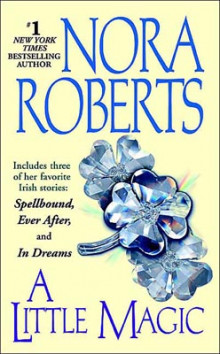 A Little Magic
A Little Magic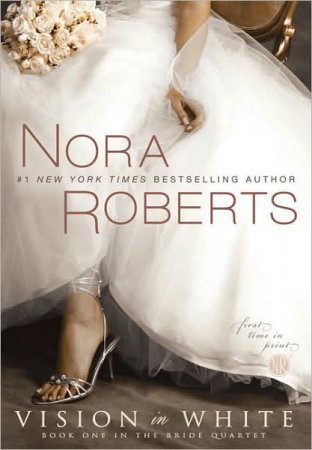 Vision in White
Vision in White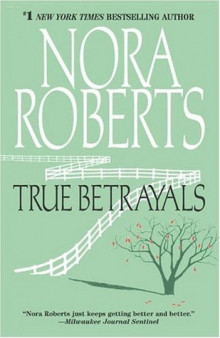 True Betrayals
True Betrayals The Next Always
The Next Always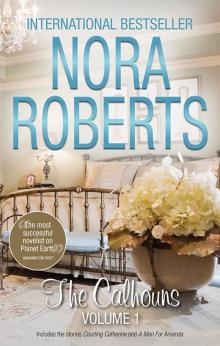 A Man for Amanda
A Man for Amanda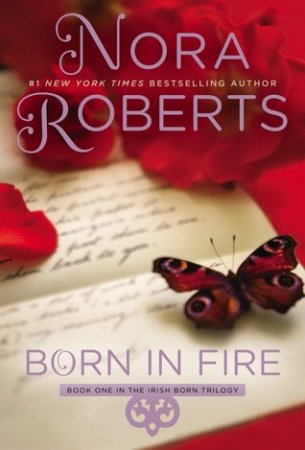 Born in Fire
Born in Fire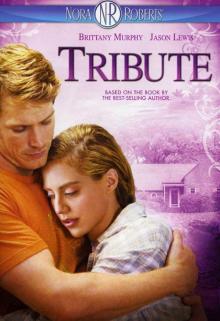 Tribute
Tribute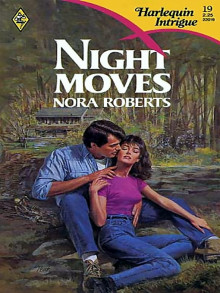 Night Moves
Night Moves Dance Upon the Air
Dance Upon the Air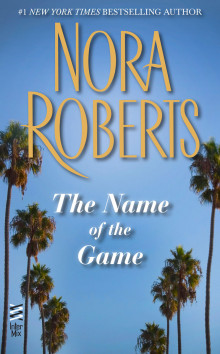 The Name of the Game
The Name of the Game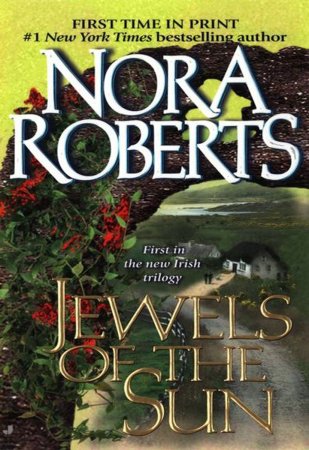 Jewels of the Sun
Jewels of the Sun River's End
River's End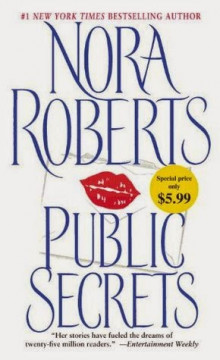 Public Secrets
Public Secrets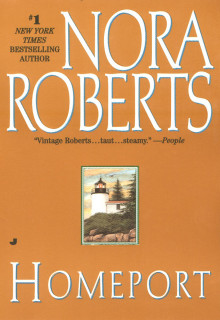 Homeport
Homeport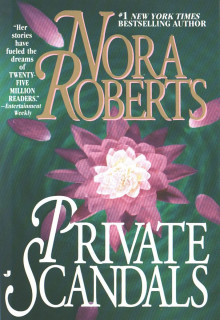 Private Scandals
Private Scandals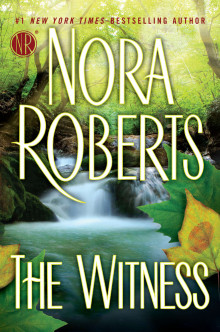 The Witness
The Witness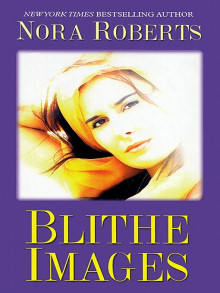 Blithe Images
Blithe Images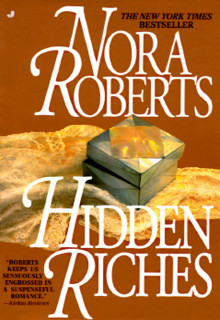 Hidden Riches
Hidden Riches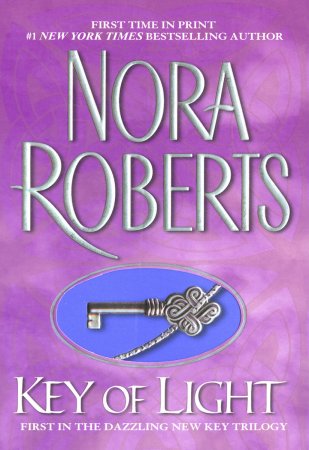 Key of Light
Key of Light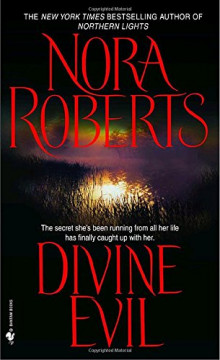 Divine Evil
Divine Evil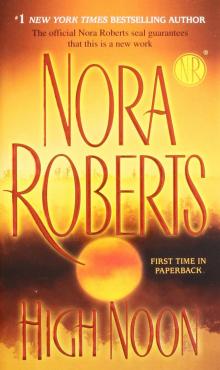 High Noon
High Noon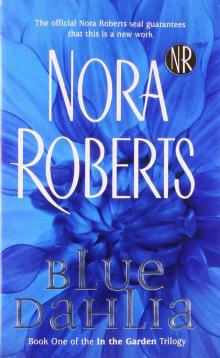 Blue Dahlia
Blue Dahlia Sea Swept
Sea Swept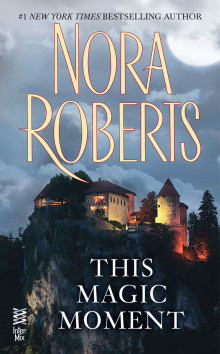 This Magic Moment
This Magic Moment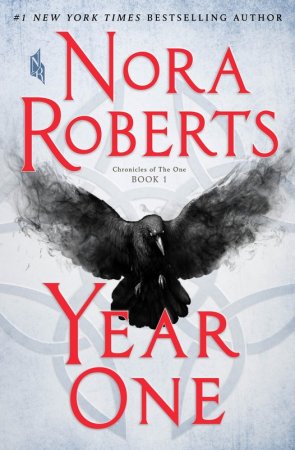 Year One
Year One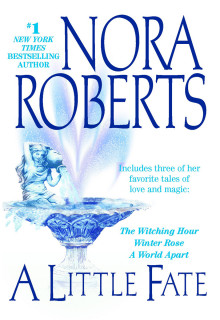 A Little Fate
A Little Fate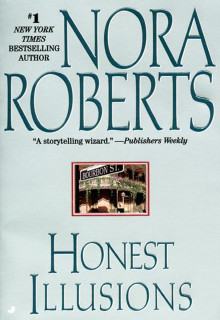 Honest Illusions
Honest Illusions The Reef
The Reef Shelter in Place
Shelter in Place The Hollow
The Hollow Holding the Dream
Holding the Dream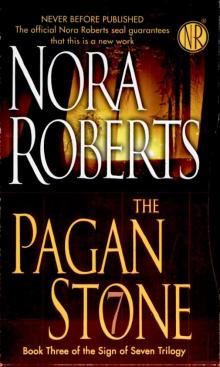 The Pagan Stone
The Pagan Stone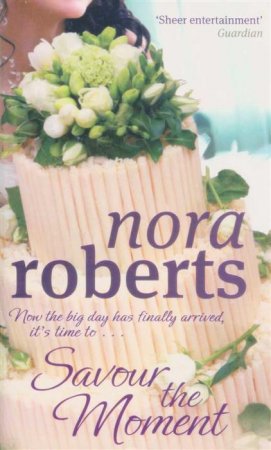 Savour the Moment
Savour the Moment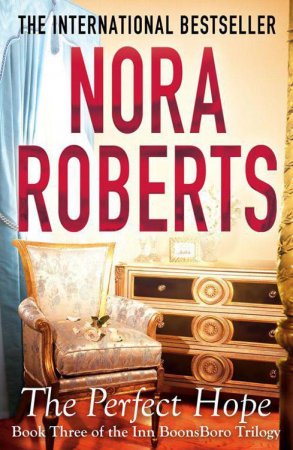 The Perfect Hope
The Perfect Hope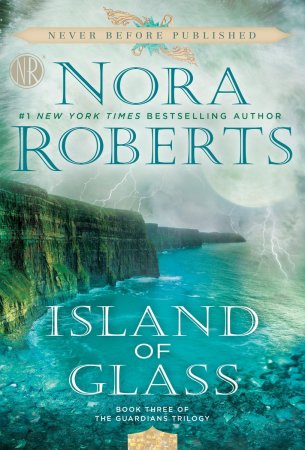 Island of Glass
Island of Glass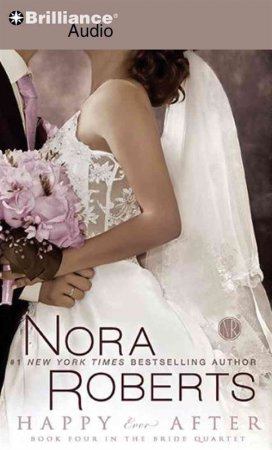 Happy Ever After
Happy Ever After Bed of Roses
Bed of Roses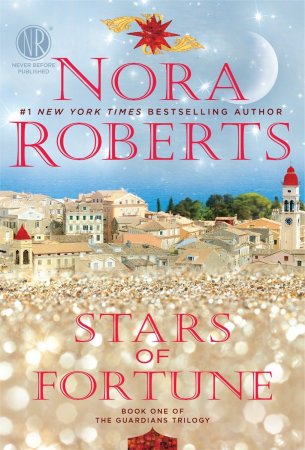 Stars of Fortune
Stars of Fortune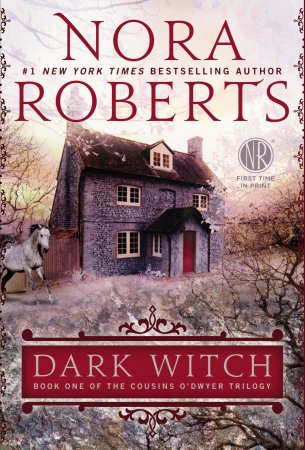 Dark Witch
Dark Witch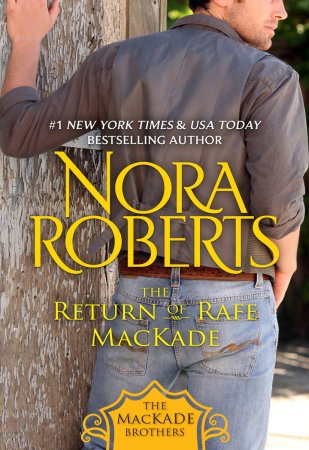 The Return of Rafe MacKade
The Return of Rafe MacKade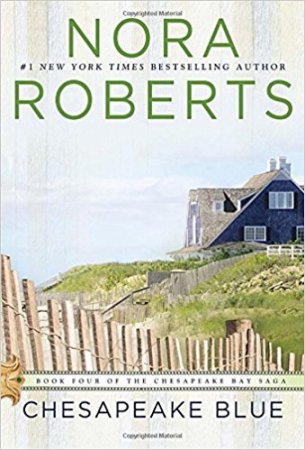 Chesapeake Blue
Chesapeake Blue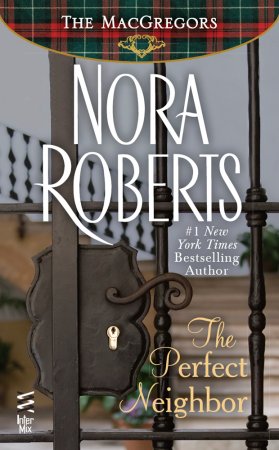 The Perfect Neighbor
The Perfect Neighbor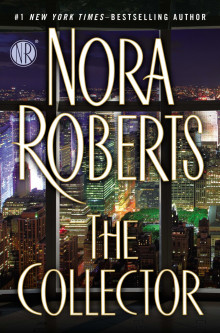 The Collector
The Collector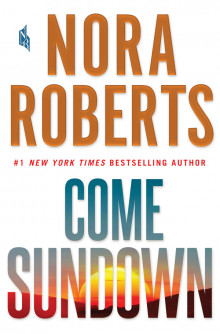 Come Sundown
Come Sundown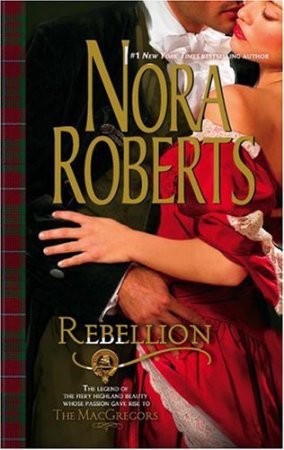 Rebellion
Rebellion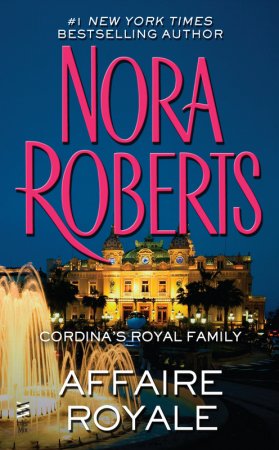 Affaire Royale
Affaire Royale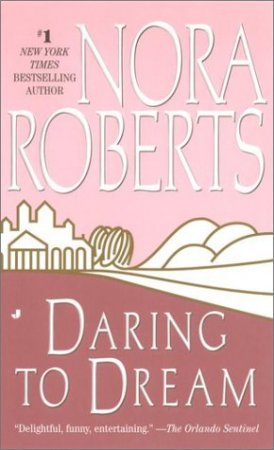 Daring to Dream
Daring to Dream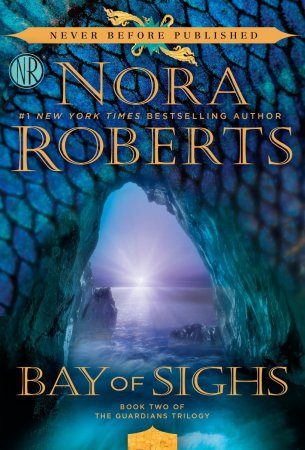 Bay of Sighs
Bay of Sighs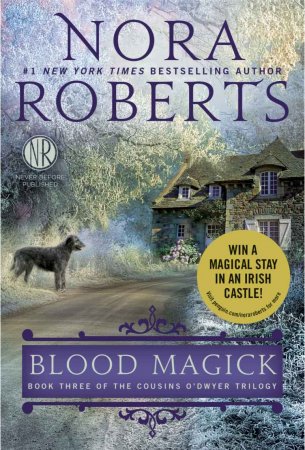 Blood Magick
Blood Magick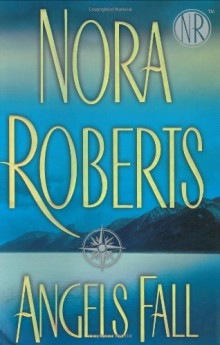 Angels Fall
Angels Fall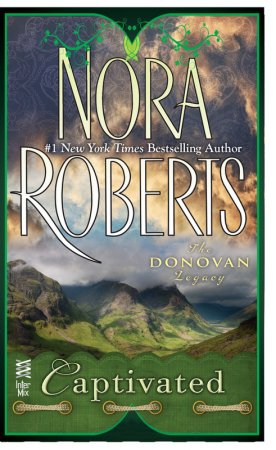 Captivated
Captivated The Last Boyfriend
The Last Boyfriend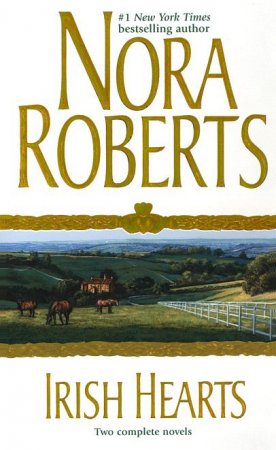 Irish Thoroughbred
Irish Thoroughbred Inner Harbor
Inner Harbor The Right Path
The Right Path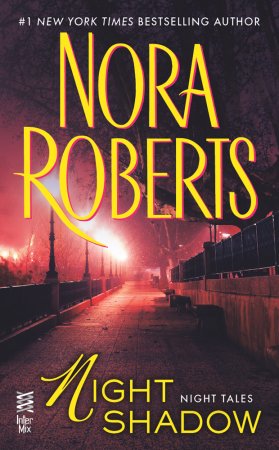 Night Shadow
Night Shadow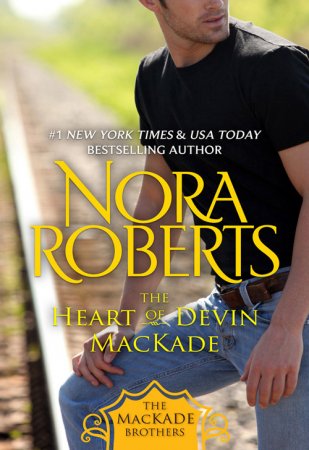 The Heart of Devin MacKade
The Heart of Devin MacKade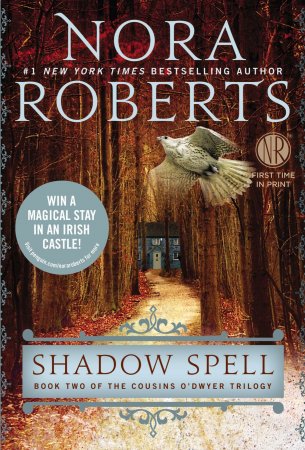 Shadow Spell
Shadow Spell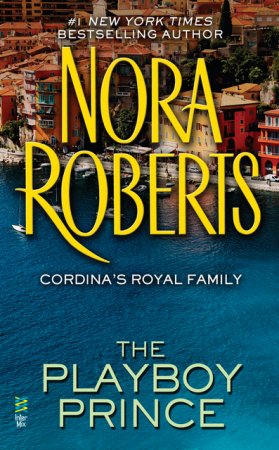 The Playboy Prince
The Playboy Prince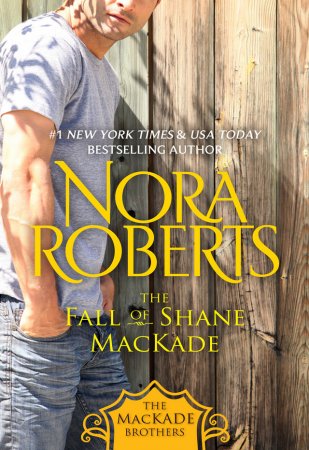 The Fall of Shane MacKade
The Fall of Shane MacKade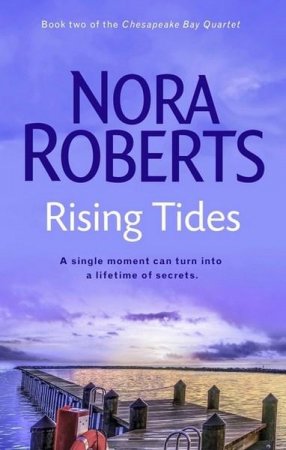 Rising Tides
Rising Tides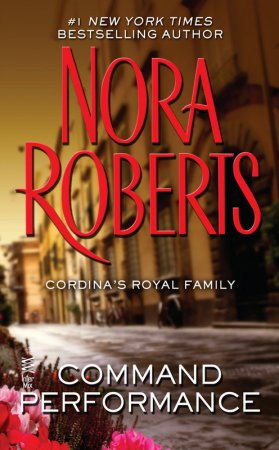 Command Performance
Command Performance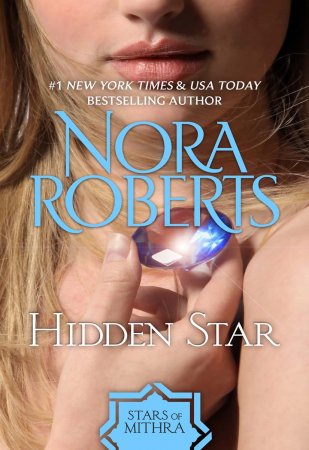 Hidden Star
Hidden Star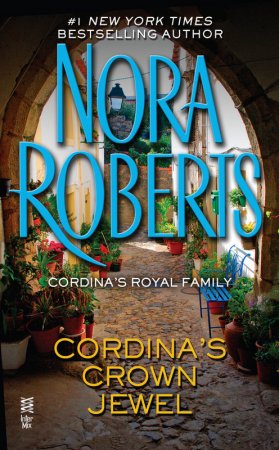 Cordina's Crown Jewel
Cordina's Crown Jewel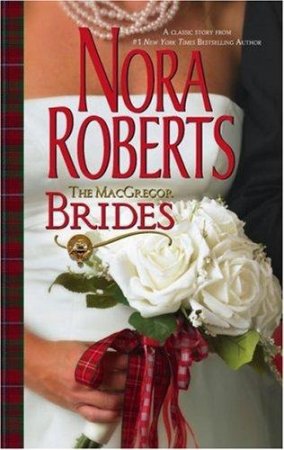 The MacGregor Brides
The MacGregor Brides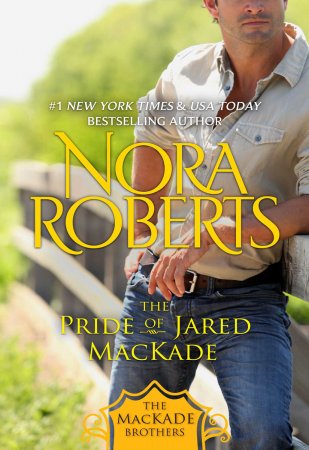 The Pride of Jared MacKade
The Pride of Jared MacKade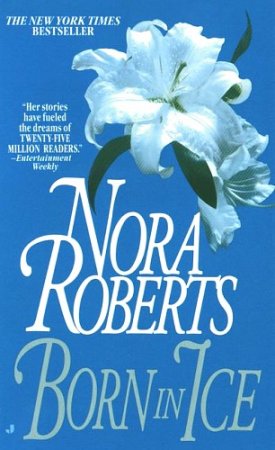 Born in Ice
Born in Ice Whiskey Beach
Whiskey Beach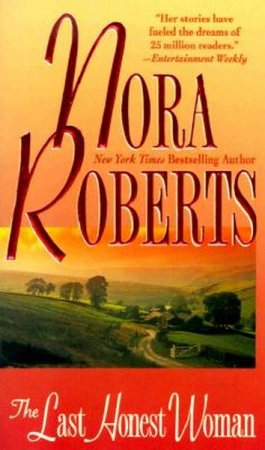 The Last Honest Woman
The Last Honest Woman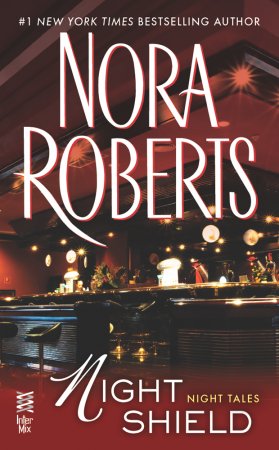 Night Shield
Night Shield Born in Shame
Born in Shame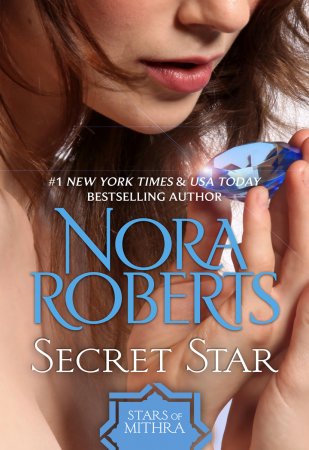 Secret Star
Secret Star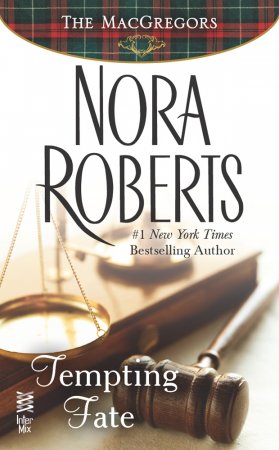 Tempting Fate
Tempting Fate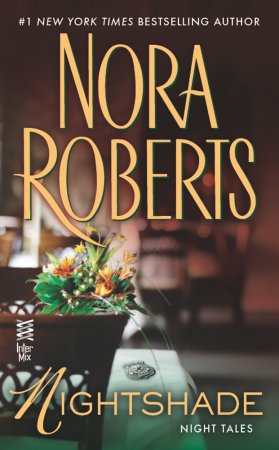 Nightshade
Nightshade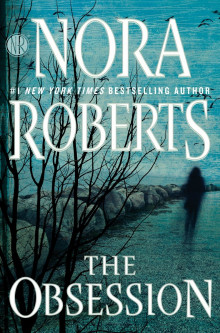 The Obsession
The Obsession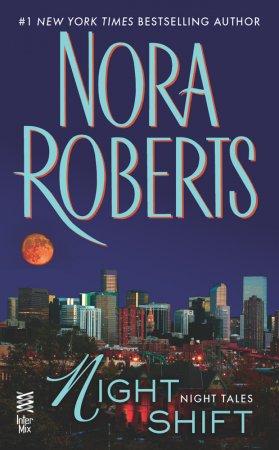 Night Shift
Night Shift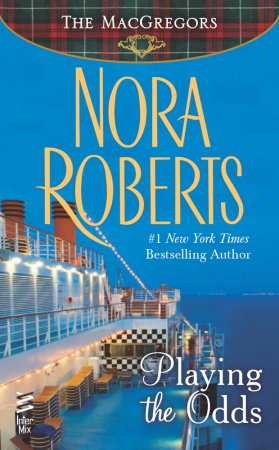 Playing The Odds
Playing The Odds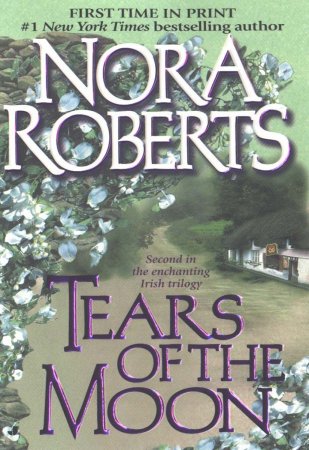 Tears of the Moon
Tears of the Moon One Man's Art
One Man's Art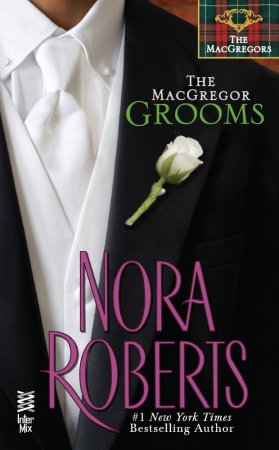 The MacGregor Groom
The MacGregor Groom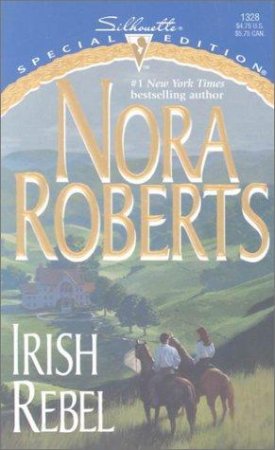 Irish Rebel
Irish Rebel Morrigan's Cross
Morrigan's Cross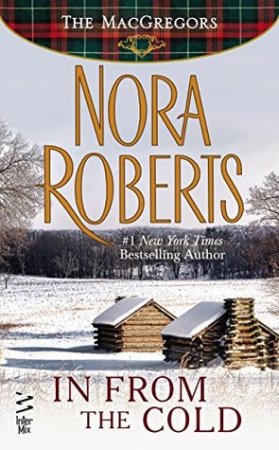 In From The Cold
In From The Cold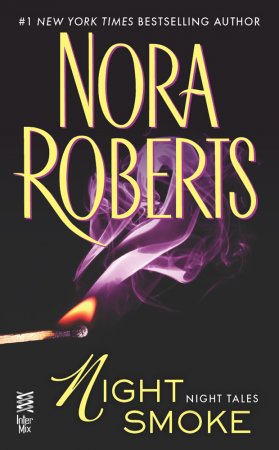 Night Smoke
Night Smoke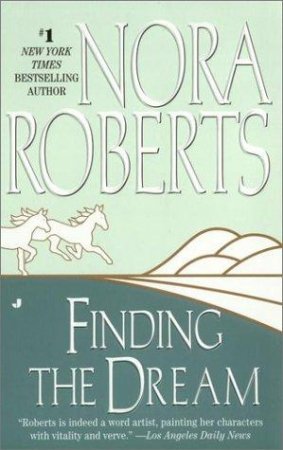 Finding the Dream
Finding the Dream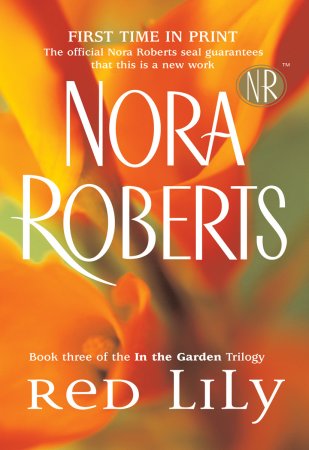 Red Lily
Red Lily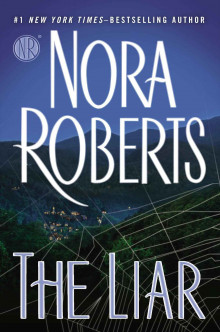 The Liar
The Liar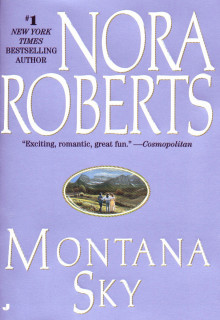 Montana Sky
Montana Sky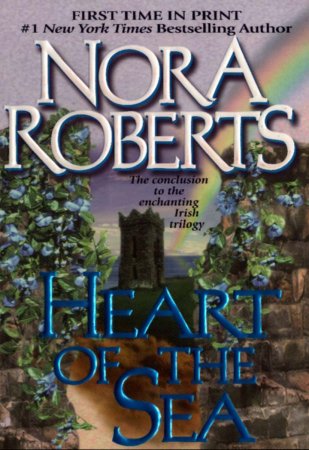 Heart of the Sea
Heart of the Sea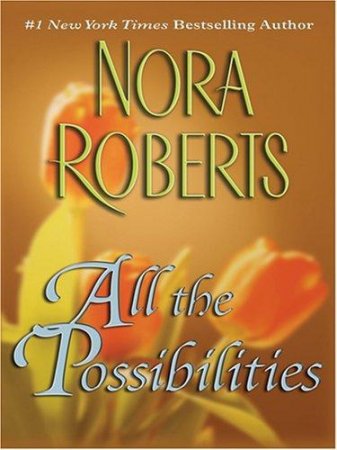 All The Possibilities
All The Possibilities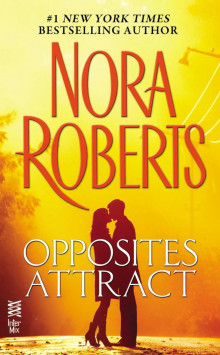 Opposites Attract
Opposites Attract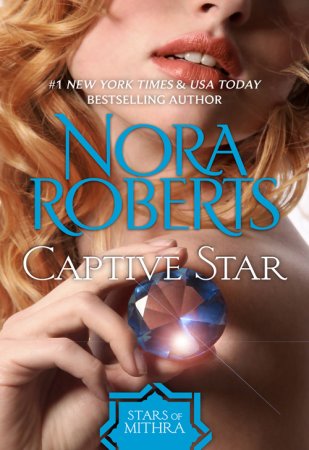 Captive Star
Captive Star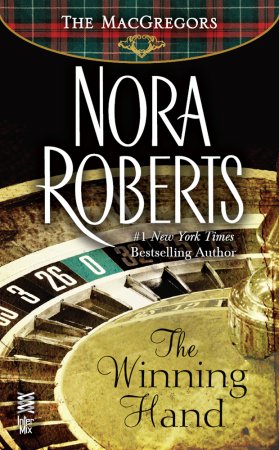 The Winning Hand
The Winning Hand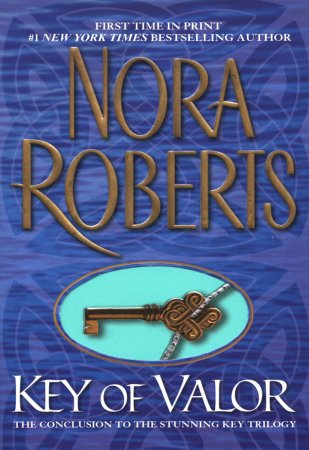 Key of Valor
Key of Valor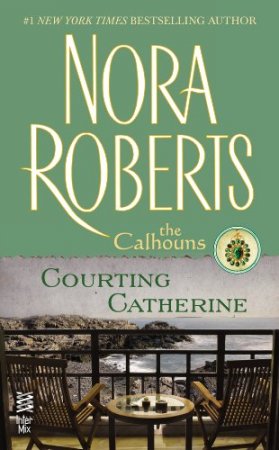 Courting Catherine
Courting Catherine Heaven and Earth
Heaven and Earth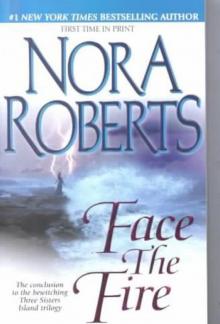 Face the Fire
Face the Fire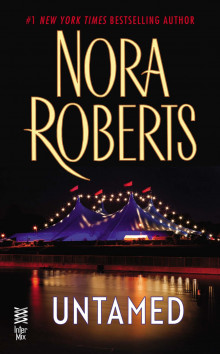 Untamed
Untamed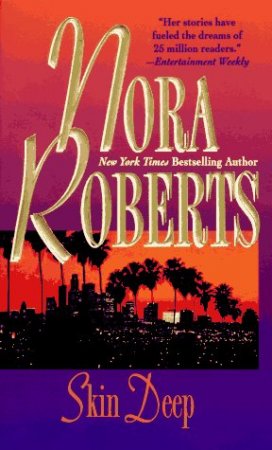 Skin Deep
Skin Deep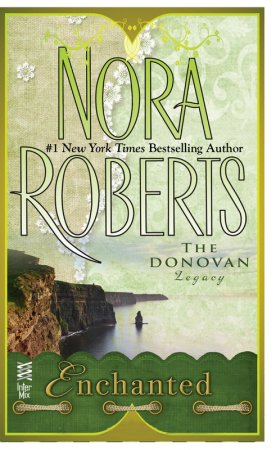 Enchanted
Enchanted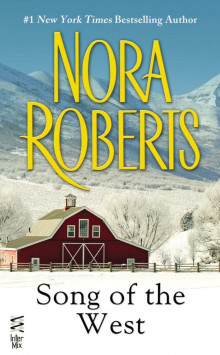 Song of the West
Song of the West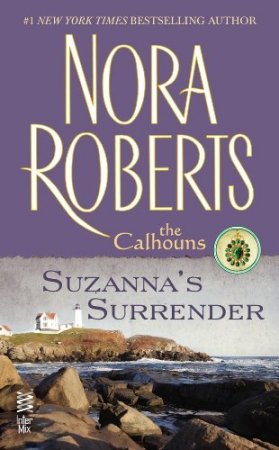 Suzanna's Surrender
Suzanna's Surrender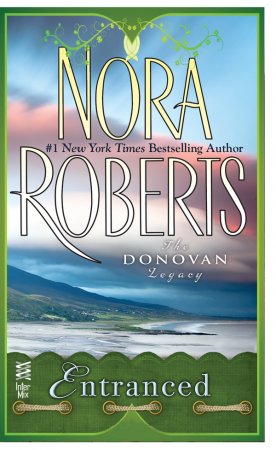 Entranced
Entranced Dance of the Gods
Dance of the Gods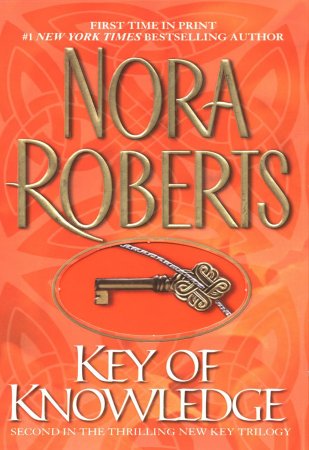 Key of Knowledge
Key of Knowledge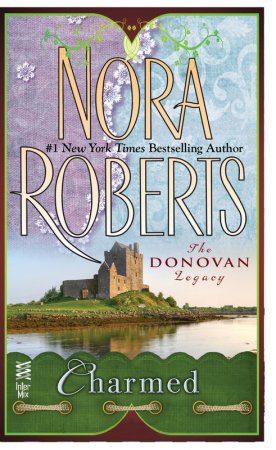 Charmed
Charmed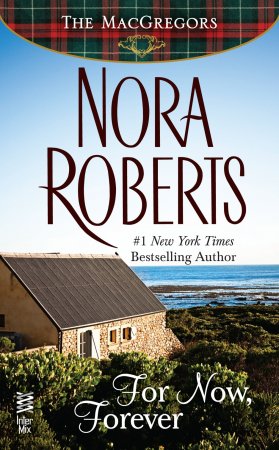 For Now, Forever
For Now, Forever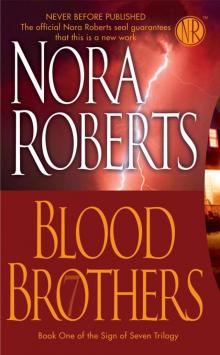 Blood Brothers
Blood Brothers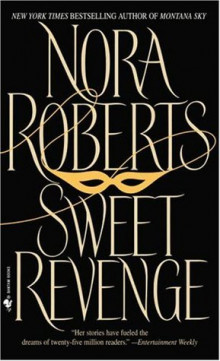 Sweet Revenge
Sweet Revenge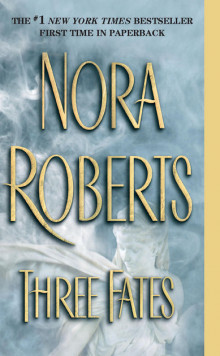 Three Fates
Three Fates Mind Over Matter
Mind Over Matter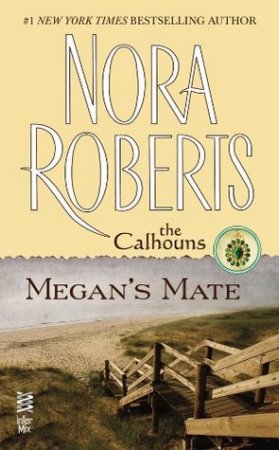 Megan's Mate
Megan's Mate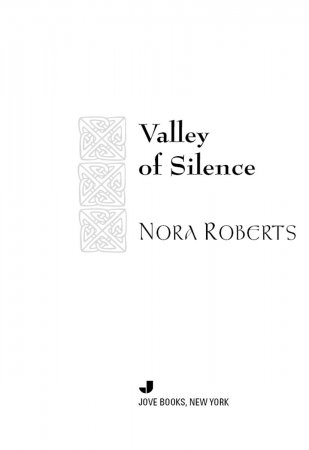 Valley of Silence
Valley of Silence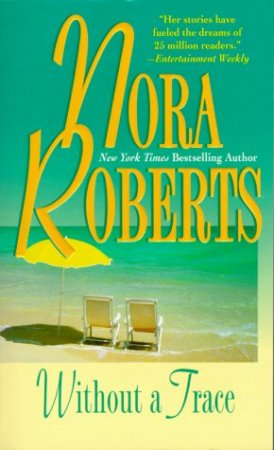 Without A Trace
Without A Trace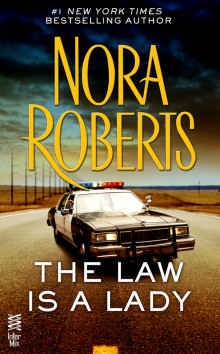 The Law is a Lady
The Law is a Lady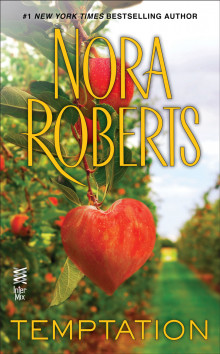 Temptation
Temptation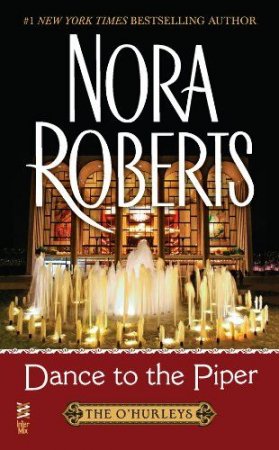 Dance to the Piper
Dance to the Piper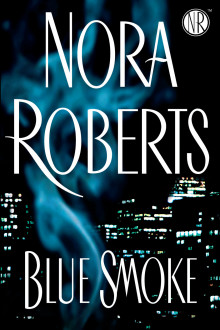 Blue Smoke
Blue Smoke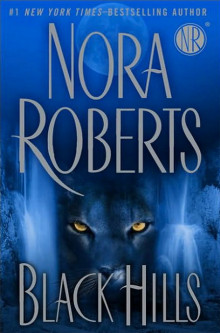 Black Hills
Black Hills The Heart's Victory
The Heart's Victory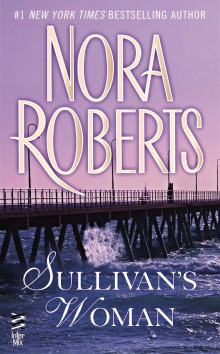 Sullivan's Woman
Sullivan's Woman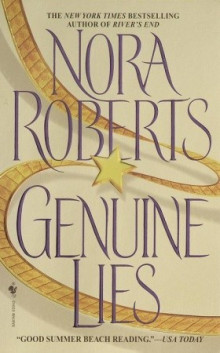 Genuine Lies
Genuine Lies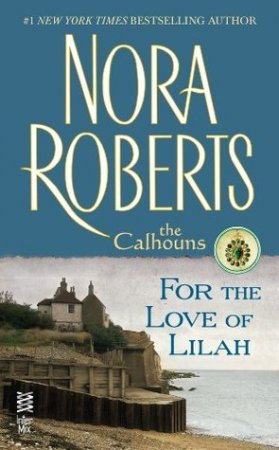 For the Love of Lilah
For the Love of Lilah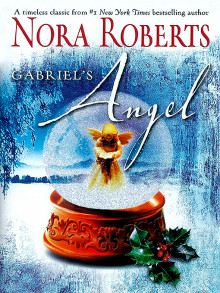 Gabriel's Angel
Gabriel's Angel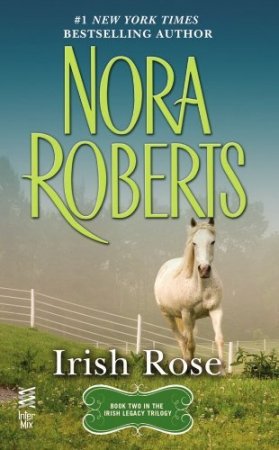 Irish Rose
Irish Rose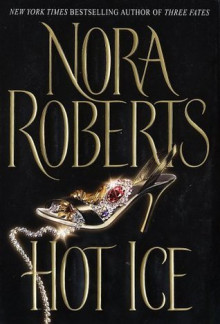 Hot Ice
Hot Ice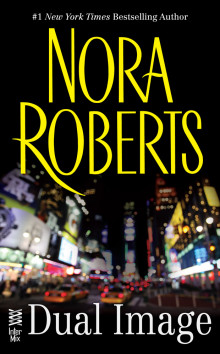 Dual Image
Dual Image Lawless
Lawless Catch My Heart
Catch My Heart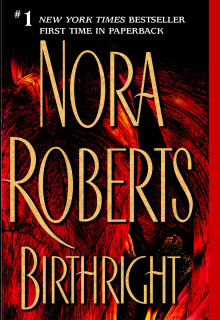 Birthright
Birthright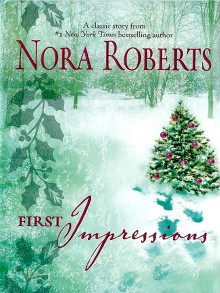 First Impressions
First Impressions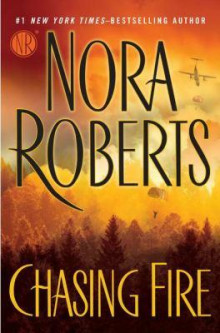 Chasing Fire
Chasing Fire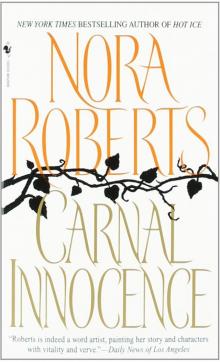 Carnal Innocence
Carnal Innocence Best Laid Plans
Best Laid Plans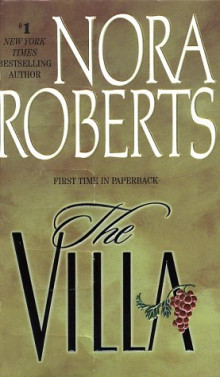 The Villa
The Villa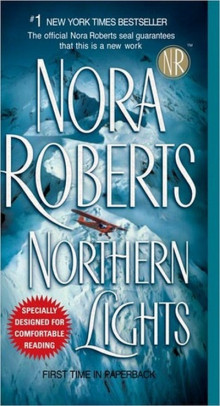 Northern Lights
Northern Lights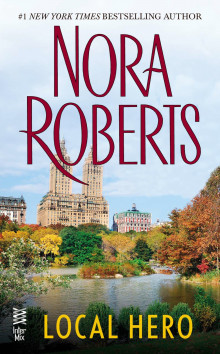 Local Hero
Local Hero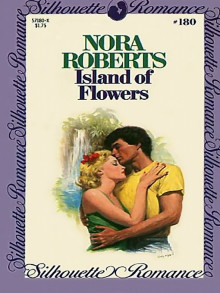 Island of Flowers
Island of Flowers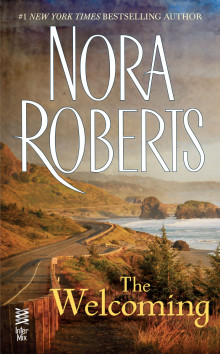 The Welcoming
The Welcoming All I Want for Christmas
All I Want for Christmas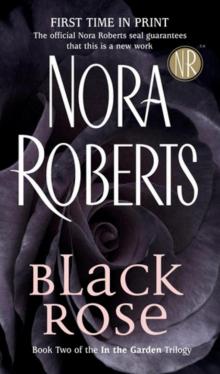 Black Rose
Black Rose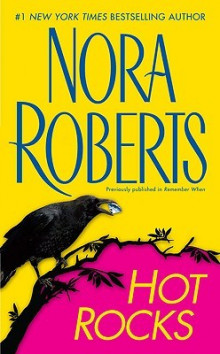 Hot Rocks
Hot Rocks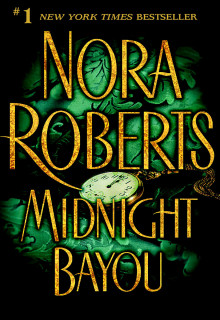 Midnight Bayou
Midnight Bayou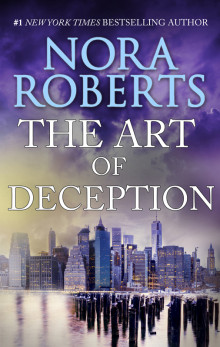 The Art of Deception
The Art of Deception From This Day
From This Day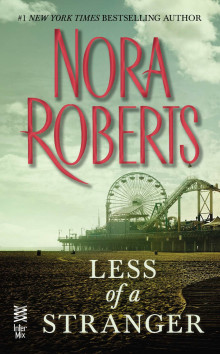 Less of a Stranger
Less of a Stranger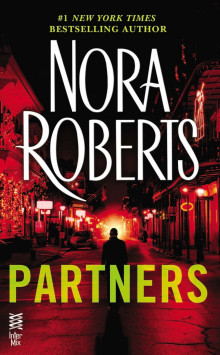 Partners
Partners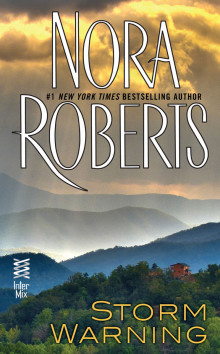 Storm Warning
Storm Warning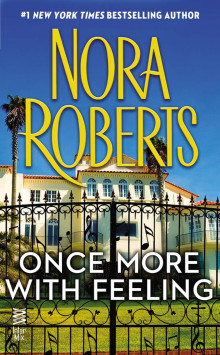 Once More With Feeling
Once More With Feeling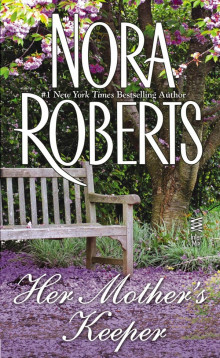 Her Mother's Keeper
Her Mother's Keeper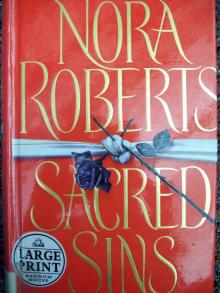 Sacred Sins
Sacred Sins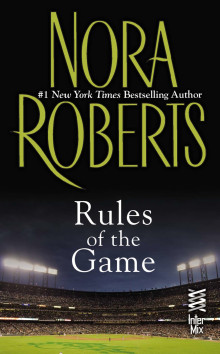 Rules of the Game
Rules of the Game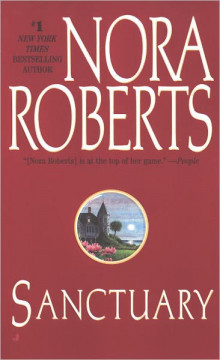 Sanctuary
Sanctuary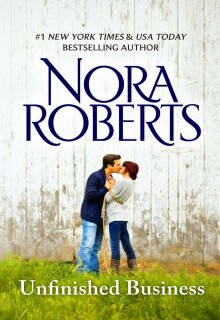 Unfinished Business
Unfinished Business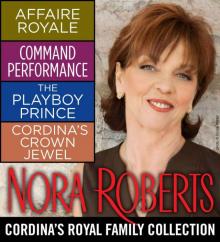 Cordina's Royal Family Collection
Cordina's Royal Family Collection Dangerous Embrace
Dangerous Embrace One Summer
One Summer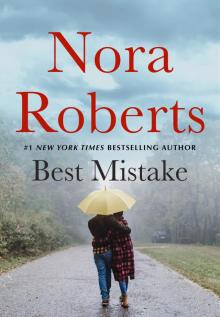 The Best Mistake
The Best Mistake Boundary Lines
Boundary Lines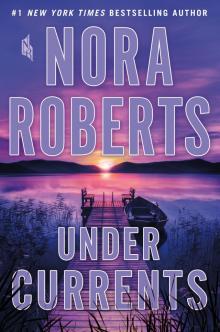 Under Currents
Under Currents The Stanislaski Series Collection, Volume 1
The Stanislaski Series Collection, Volume 1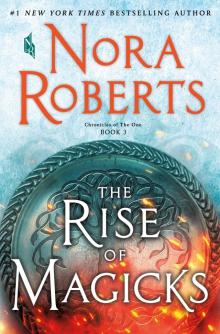 The Rise of Magicks
The Rise of Magicks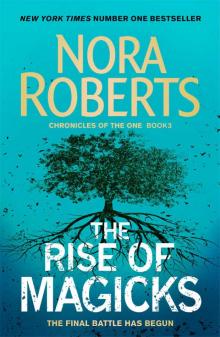 The Rise of Magicks (Chronicles of The One)
The Rise of Magicks (Chronicles of The One)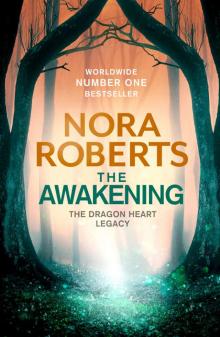 The Awakening: The Dragon Heart Legacy Book 1
The Awakening: The Dragon Heart Legacy Book 1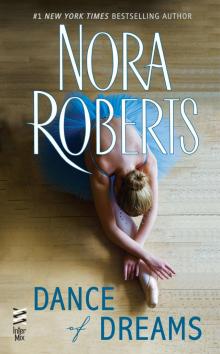 Dance of Dreams
Dance of Dreams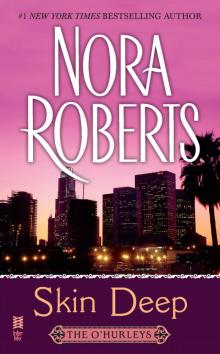 Skin Deep: The O'Hurleys
Skin Deep: The O'Hurleys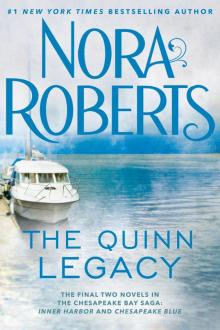 The Quinn Legacy: Inner Harbor ; Chesapeake Blue
The Quinn Legacy: Inner Harbor ; Chesapeake Blue![[Chronicles of the One 03.0] The Rise of Magicks Read online](http://i1.bookreadfree.com/11/chronicles_of_the_one_03_0_the_rise_of_magicks_preview.jpg) [Chronicles of the One 03.0] The Rise of Magicks
[Chronicles of the One 03.0] The Rise of Magicks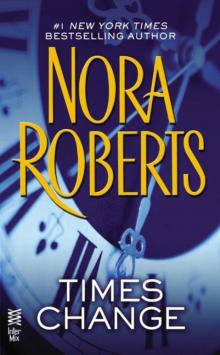 Times Change
Times Change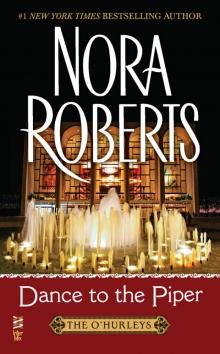 Dance to the Piper: The O'Hurleys
Dance to the Piper: The O'Hurleys Christmas In the Snow: Taming Natasha / Considering Kate
Christmas In the Snow: Taming Natasha / Considering Kate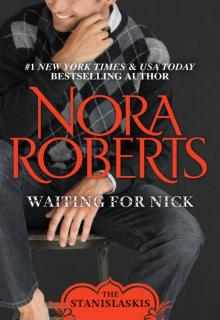 Waiting for Nick
Waiting for Nick Summer Desserts
Summer Desserts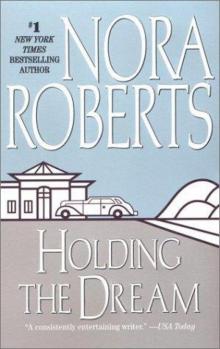 Dream 2 - Holding the Dream
Dream 2 - Holding the Dream The Novels of Nora Roberts, Volume 2
The Novels of Nora Roberts, Volume 2 In the Garden Trilogy
In the Garden Trilogy Eight Classic Nora Roberts Romantic Suspense Novels
Eight Classic Nora Roberts Romantic Suspense Novels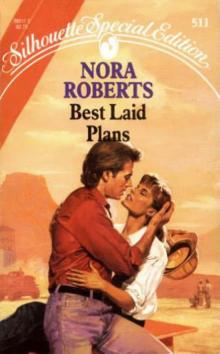 Best Laid Plans jh-2
Best Laid Plans jh-2 From the Heart
From the Heart Holiday Wishes
Holiday Wishes Dream 1 - Daring to Dream
Dream 1 - Daring to Dream Second Nature
Second Nature Summer Pleasures
Summer Pleasures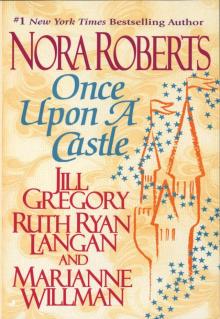 Once Upon a Castle
Once Upon a Castle Stars of Mithra Box Set: Captive StarHidden StarSecret Star
Stars of Mithra Box Set: Captive StarHidden StarSecret Star Impulse
Impulse The Irish Trilogy by Nora Roberts
The Irish Trilogy by Nora Roberts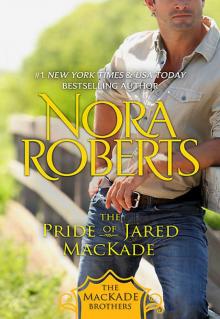 The Pride Of Jared Mackade tmb-2
The Pride Of Jared Mackade tmb-2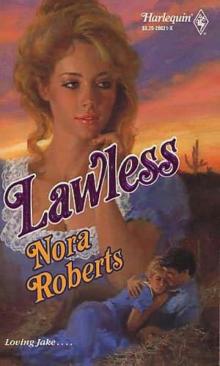 Lawless jh-3
Lawless jh-3 Taming Natasha
Taming Natasha Endless Summer
Endless Summer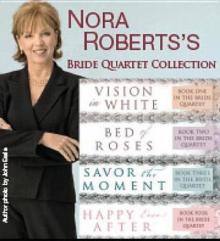 Bride Quartet Collection
Bride Quartet Collection Happy Ever After tbq-4
Happy Ever After tbq-4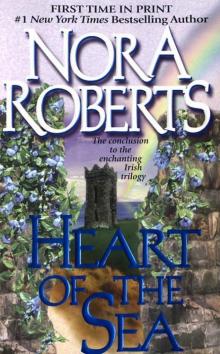 Heart Of The Sea goa-3
Heart Of The Sea goa-3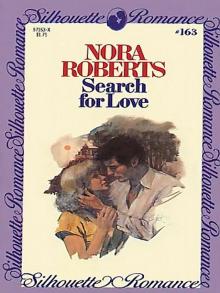 Search for Love
Search for Love Once upon a Dream
Once upon a Dream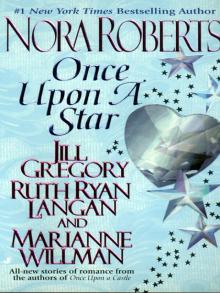 Once Upon a Star
Once Upon a Star Dream Trilogy
Dream Trilogy Risky Business
Risky Business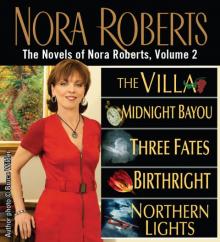 The Novels of Nora Roberts, Volume 3
The Novels of Nora Roberts, Volume 3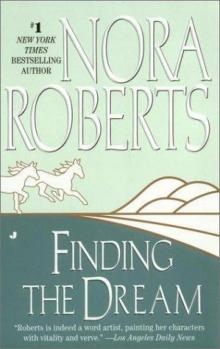 Dream 3 - Finding the Dream
Dream 3 - Finding the Dream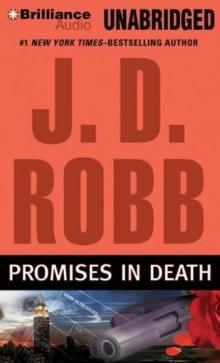 Promises in Death id-34
Promises in Death id-34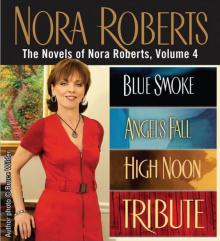 The Novels of Nora Roberts, Volume 4
The Novels of Nora Roberts, Volume 4 The Perfect Hope ib-3
The Perfect Hope ib-3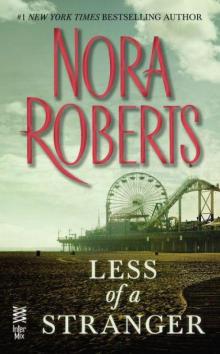 Less than a Stranger
Less than a Stranger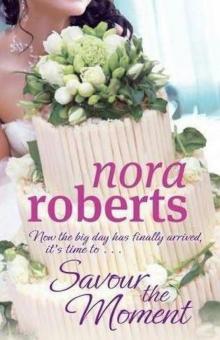 Savour the Moment: Now the Big Day Has Finally Arrived, It's Time To...
Savour the Moment: Now the Big Day Has Finally Arrived, It's Time To... Convincing Alex
Convincing Alex Bed of Roses tbq-2
Bed of Roses tbq-2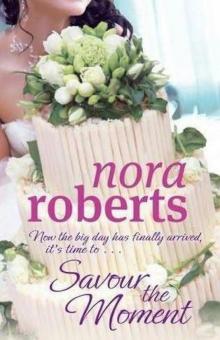 Savour the Moment tbq-3
Savour the Moment tbq-3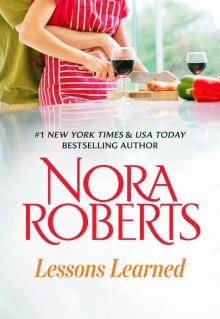 Lessons Learned
Lessons Learned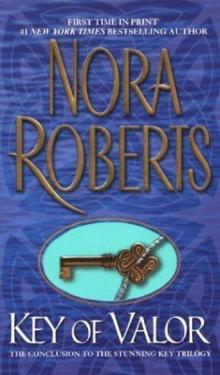 Key Of Valor k-3
Key Of Valor k-3 Red lily gt-3
Red lily gt-3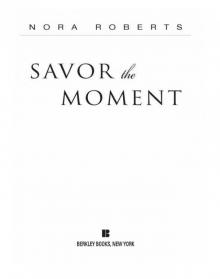 Savor the Moment
Savor the Moment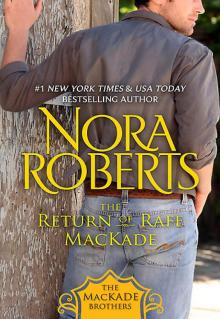 The Return Of Rafe Mackade tmb-1
The Return Of Rafe Mackade tmb-1 For The Love Of Lilah tcw-3
For The Love Of Lilah tcw-3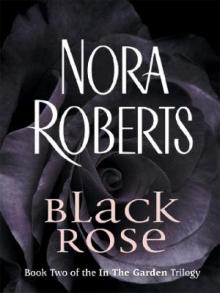 Black Rose gt-2
Black Rose gt-2 Novels: The Law is a Lady
Novels: The Law is a Lady Chesapeake Bay Saga 1-4
Chesapeake Bay Saga 1-4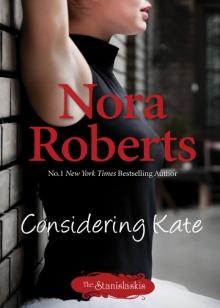 Considering Kate
Considering Kate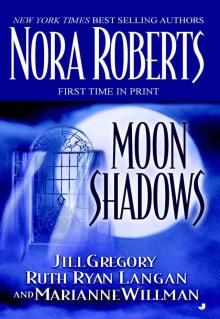 Moon Shadows
Moon Shadows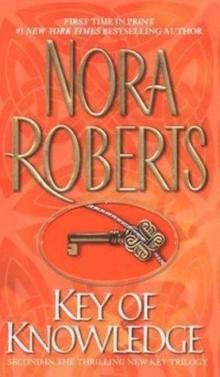 Key of Knowledge k-2
Key of Knowledge k-2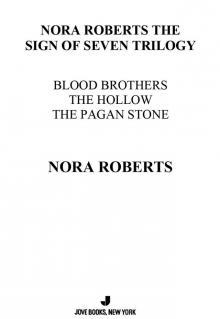 The Sign of Seven Trilogy
The Sign of Seven Trilogy Once Upon a Kiss
Once Upon a Kiss The Novels of Nora Roberts, Volume 5
The Novels of Nora Roberts, Volume 5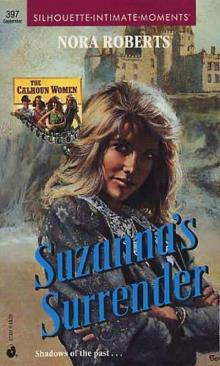 Suzanna's Surrender tcw-4
Suzanna's Surrender tcw-4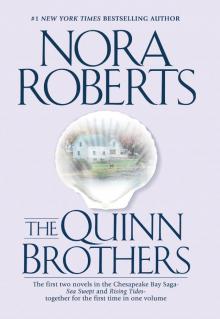 The Quinn Brothers
The Quinn Brothers Falling for Rachel
Falling for Rachel Brazen Virtue
Brazen Virtue Time Was
Time Was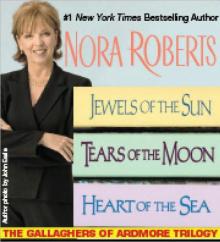 The Gallaghers of Ardmore Trilogy
The Gallaghers of Ardmore Trilogy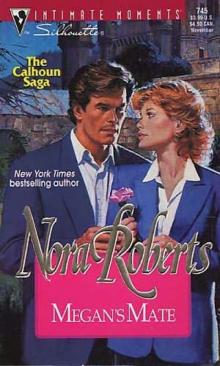 Megan's Mate tcw-5
Megan's Mate tcw-5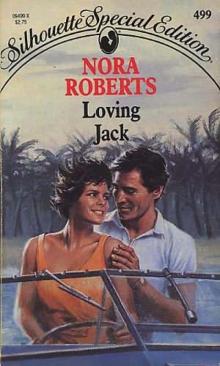 Loving Jack jh-1
Loving Jack jh-1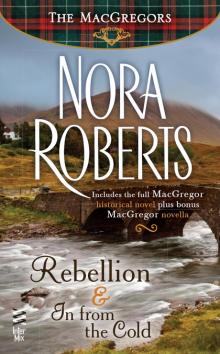 Rebellion & In From The Cold
Rebellion & In From The Cold Blue Dahlia gt-1
Blue Dahlia gt-1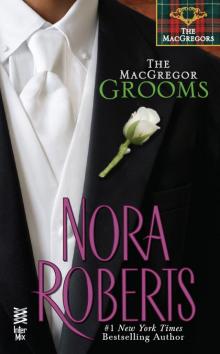 The MacGregor Grooms
The MacGregor Grooms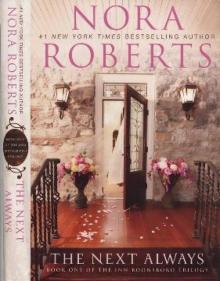 The Next Always tibt-1
The Next Always tibt-1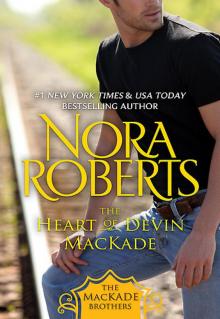 The Heart Of Devin Mackade tmb-3
The Heart Of Devin Mackade tmb-3 The Novels of Nora Roberts Volume 1
The Novels of Nora Roberts Volume 1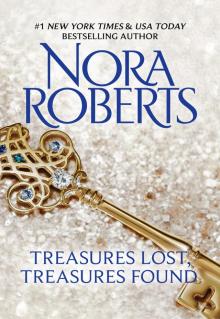 Treasures Lost, Treasures Found
Treasures Lost, Treasures Found Nora Roberts's Circle Trilogy
Nora Roberts's Circle Trilogy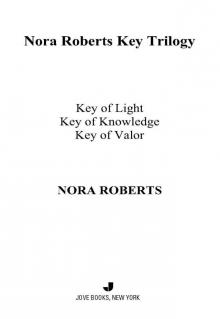 The Key Trilogy
The Key Trilogy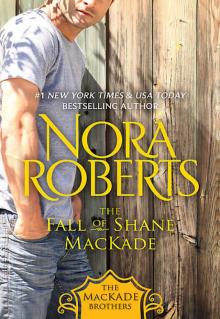 The Fall Of Shane Mackade tmb-4
The Fall Of Shane Mackade tmb-4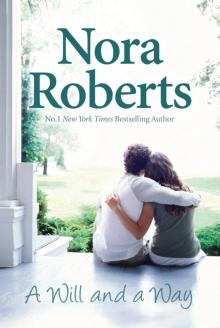 A Will And A Way
A Will And A Way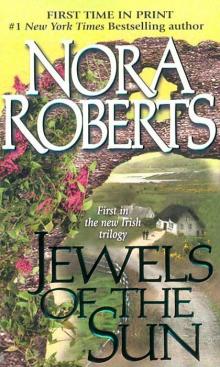 Jewels of the Sun goa-1
Jewels of the Sun goa-1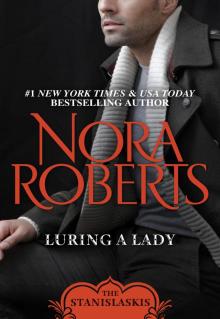 Luring a Lady
Luring a Lady